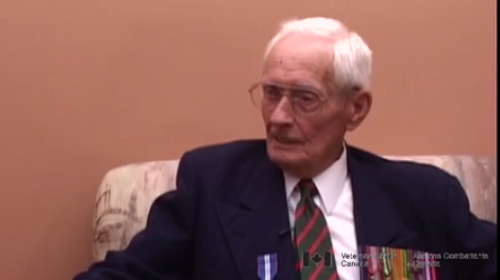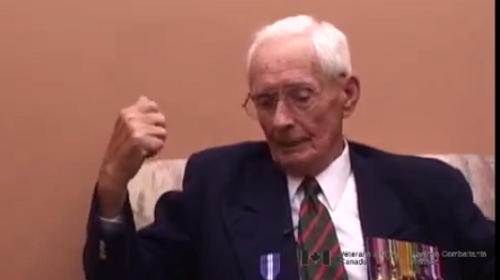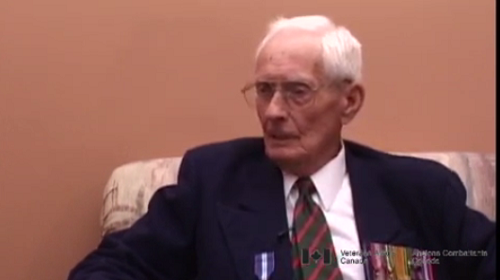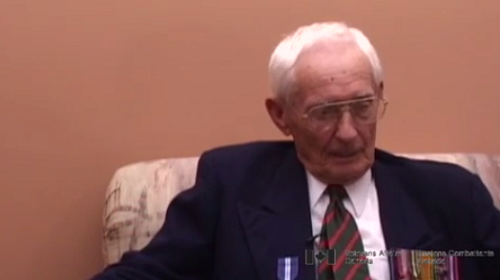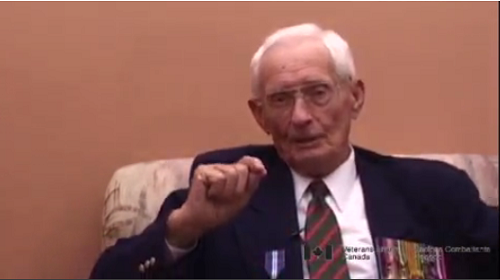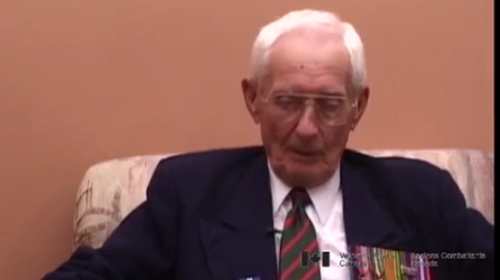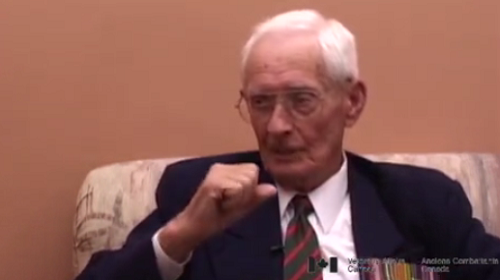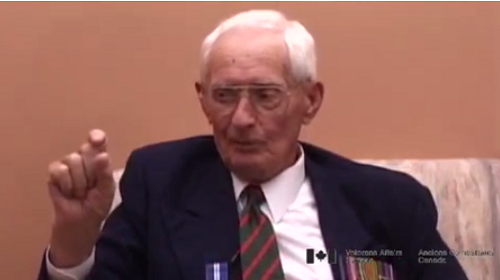Battle Conditions
Heroes Remember
Battle Conditions
Transcript
They started to shell Hong Kong from Kowloon,
just across the harbour.
So they knew there was more Japanese in Hong Kong
than there was Canadians and they knew every pillbox on Hong Kong.
Where it was and how thick it was
and how many guns it held and everything.
Cause after when we'd catch some of their officers
and they got killed, they always had a big backpack full of maps
and just papers, temporary things.
So we'd get a hold of that and they knew all about it
and we didn't know anything about it,
cause we only... how we were taken across,
marched across to Stanley in that area, in the Tai Tam area,
that's where the Rifles went.
Where the Grenadiers went to was further up on the south-west side.
So when they, the Japanese broke through there
on the north side of the island. They made landings during the night.
So they need reinforcements over there.
They had pushed our, one of our company's back, ‘C' company.
So they took, they took 17 Platoon, which was the one I was in,
from the south side and it was taken over almost right down to Kowloon.
Right down in there, facing them,
and that's where we first met the Japs.
‘D' company, our part ‘D' company.
Of course the pillboxes were on that side where they were coming in.
So that was getting the majority of the artillery fire from the Japs.
And it was a deadly dark night, and they had shelled some oil tankers
and stuff in the harbour, which were on fire
and that smoke was drifting right in that direction where we were
on that road going across to Stanley.
So we fought all along that road and it got clear in the morning
and there were some bad things happened.
People get cut-off and there'd be accidental shots.
You know and men getting killed, uselessly.
So they pushed us back to, right to the morning
and now we were right down to Tai Tam the gap.
So from then on they moved us back and forth,
whatever days it would be, from one hill to another.
They would attack these hills and of course they'd overrun us.
They had ten times the amount of troops and we had no tanks.
We had no air support, and we had no artillery.
When there'd be a British gun here and there, we'd move along.
We had no guns. No, no support.
I don't think we ever had one shell fire in our,
if we advanced, where we would go. We just had to go as the infantry.
Description
Mr. Ross describes the battle conditions faced by the Royal Rifles, particularly being vastly outnumbered and lacking any tactical support.
Lancelot ‘Lance’ Ross
Mr. Lance Ross was born in Lac-Megantic, Quebec on October 7, 1911. His father was a carpenter and a family farmer. Mr. Ross went to work at the age of fourteen, holding many odd jobs that paid $1.00 to $1.50 a day. Impatient with the wait for joining the air foce, Mr. Ross joined the army and went overseas to Hong Kong. He was captured and spent time in POW camps. During this time, Mr. Ross kept a diary that was used for the prosecution of Japanese war crimes. After the war, he was active in getting recognition for Hong Kong Veterans.
Meta Data
- Medium:
- Video
- Owner:
- Veterans Affairs Canada
- Duration:
- 3:42
- Person Interviewed:
- Lancelot ‘Lance’ Ross
- War, Conflict or Mission:
- Second World War
- Battle/Campaign:
- Hong Kong
- Branch:
- Army
- Units/Ship:
- Royal Rifles of Canada
- Rank:
- Sergeant
- Occupation:
- Platoon Sergeant
Related Videos
- Date modified:



